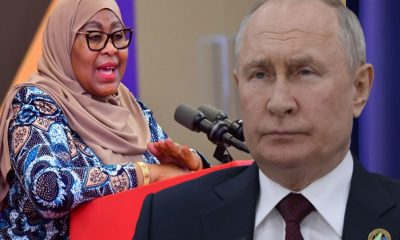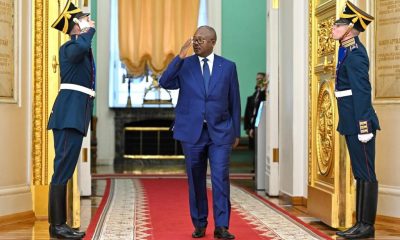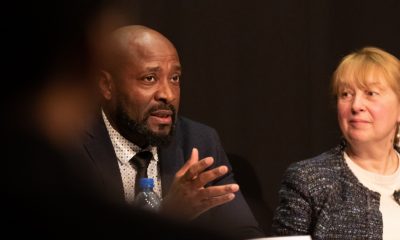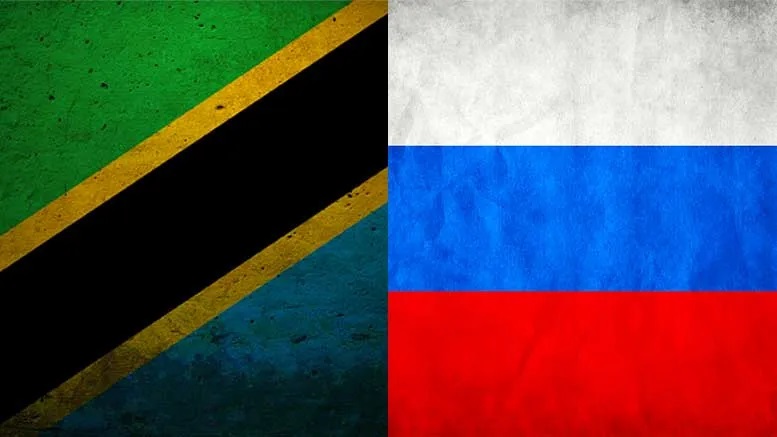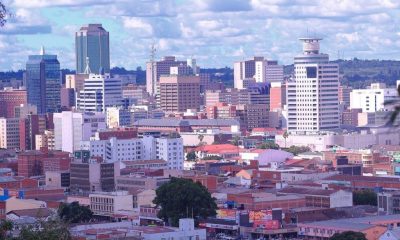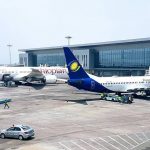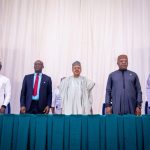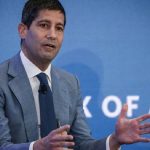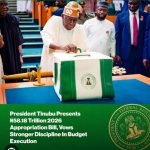World
Russia Seeks Indivisible Working Relationship With IMF

By Kestér Kenn Klomegâh
After several years of mounting fierce criticisms over the operations and performance of the International Monetary Fund [IMF] and consistently advocating for its structural reforms, Russia has reversed its position to get back into and strengthen its position with this multilateral financial organization. With the current geopolitical shift which is reshaping the world’s economic architecture, Russia has been [re]prioritising its association by a fresh announcement over an appointment of a representative with the IMF.
In February 2024, the International Monetary Fund [IMF] endorsed Russia’s macroeconomic programmes, further describing them as admirable steps, and primarily with pivotal development initiatives which is integral to its broader strategy for transforming an ambitious modern economy. In fact, IMF director Kristalina Georgieva upgraded the forecast for Russia’s growth. Reports have also indicated that Russia was on the right path to achieve more and maintain its 4th position in the rankings. The IMF doubled its forecast for Russian growth in 2024, boosting its prediction from 1.1% to 2.6% in January. And that marks the biggest jump for the former Soviet republic, Russia.
On the other hand, Russian economic conditions are starting to look more and more like the country’s 20th-century predecessor, where high production levels clashed with weak demand. “That is pretty much what the Soviet Union used to look like,” Kristalina Ivanova Georgieva-Kinova, a Bulgarian economist serving as the 12th managing director of the International Monetary Fund since 2019, said at the World Governments Summit in Dubai. “High level of production, low level of consumption. I think that the Russian economy is [in] for very tough times, because of the outflow of people and because of the reduced access to technology that comes with the sanctions.”
Recognizing the importance of multinationals, in late September 2024, Prime Minister Mikhail Mishustin, by signing an executive order, instructed Finance Minister Anton Siluanov, who is International Monetary Fund Governor for the Russian Federation, to nominate Ksenia Yudaeva for election as Russia’s Executive Director at the IMF. Without a doubt, the sanctioned former central banker will now become Russia’s IMF representative.
Local Russian media reported that Yudaeva, a former Central Bank of Russia’s first deputy governor, could become Russia’s Executive Director at the IMF. It further said Alexei Mozhin had been Russia’s permanent representative at the IMF since the 1990s. Back in 1991, when Yegor Gaidar led the government, he headed a new department for liaison with international financial organizations, and he became Russia’s Executive Director at the IMF in 1996. Data shows that Russia joined the IMF on June 1, 1992.
Mozhin has served as the Dean of the IMF Executive Board since 2014 as the Fund’s oldest active member. This status carries with it certain functions, for example, the Dean makes announcements on behalf of the board on the selection and appointment of the IMF Managing Director. The IMF Board of Governors suspended the role of Dean in March 2022, in connection with the events in Ukraine.
In a related development in establishing a working relationship between Russia and the IMF, the September 2024 media briefing of the IMF report indicated that Article IV Consultations with Russia would resume in line with the obligations and would hold bilateral discussions with the Russian authorities. This would include meeting with some different stakeholders to discuss the country’s economic developments, prospects, and policies.
During the upcoming visit to Russia, there are arrangements to meet with Ksenia Yudaeva, the next Executive Director from Russia in the IMF. “Actually, in the case of Russia, since the invasion of Ukraine in 2022, the economic situation has been exceptionally unsettled, which has made it difficult to anchor Article IV Consultations, especially thinking about the outlook and policy frameworks for both the near- and the medium-term. Now that the economic situation is more settled, Article IV Consultations with Russia are resuming, in line with the obligations of both the Fund and the member country,” Julie Kozack, Director of the Communications Department, IMF, told the media briefing on September 12, 2024.
Quite a bit in the past time, Russia has made an irreversible decision to suspend its membership and future participation in a number of multinational organizations and institutions, and highly disparaging them instead of mutually cooperating on needed reforms within the context of the emerging multipolar system. With the dominance of the United States and its concept of democracy, Russia has also spearheaded the formation of anti-western antagonistic tendencies and trends across the world. The world is largely now drawn into either creating an interactive, fairer multipolar world or the group against Western hegemony.
Reports monitored by this author indicated that Russia has already exited, following the historic fall of the Soviet era, from international organizations and multinational institutions. It has urged many leaders in Latin America, Asia and Africa to vehemently oppose conservative Western-style rules-based order and hegemony. Remarkable, during these past few years, many countries from these regions have increasingly shown diverse interests in joining BRICS+ (Brazil, Russia, India, China and South Africa), an informal association with a virtual secretariat, attempting to institutionalize South-South cooperation and taking radical steps entirely working towards improving the situation in the Global South.
BRICS+ established its New Development Bank in 2015, as an alternative to the IMF and the World Bank. Its primary aim is to compete with these multinational financial institutions, offer interest-free loans and invest heavily in developing countries. At the 6th BRICS summit in July 2014, the BRICS members (Brazil, Russia, India, China, and South Africa) announced the BRICS Contingent Reserve Arrangement (CRA) with an initial size of $100 billion, a framework to provide liquidity through currency swaps in response to actual or potential short-term balance-of-payments pressures. It has yet to measure or assess the visible impact it has made since its establishment in 2015.
The IMF works to stabilize and foster the economies of its member countries by its use of the fund, as well as other activities such as gathering and analyzing economic statistics and surveillance of its members’ economies. The recurrent challenge has been to promote and implement a policy that reduces the frequency of crises among emerging market countries, especially middle-income countries which are vulnerable to massive capital outflows. It supported Russia during the 1998 Russian financial crisis, from spreading and threatening the entire global financial and currency system. According to official reports, four emerging market countries (Brazil, China, India, and Russia) are among the ten largest members of the IMF. Other top 10 members are the United States, Japan, Germany, France, the United Kingdom and Italy.
World
Trump Picks Kevin Warsh to Succeed Jerome Powell as Federal Reserve Chair
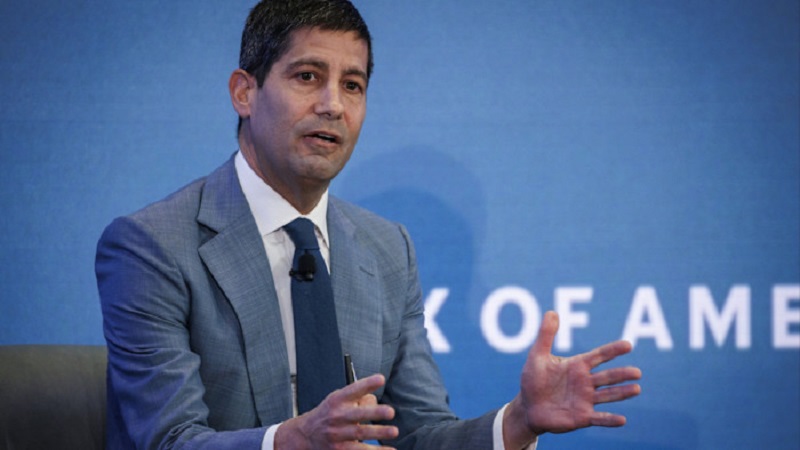
By Adedapo Adesanya
President Donald Trump has named Mr Kevin Warsh as the successor to Mr Jerome Powell as the Federal Reserve chair, ending a prolonged odyssey that has seen unprecedented turmoil around the central bank.
The decision culminates a process that officially began last summer but started much earlier than that, with President Trump launching a criticism against the Powell-led US central bank almost since he took the job in 2018.
“I have known Kevin for a long period of time, and have no doubt that he will go down as one of the GREAT Fed Chairmen, maybe the best,” Mr Trump said in a Truth Social post announcing the selection.
US analysts noted that the 55-year old appear not to ripple market because of his previous experience at the apex bank as Governor, with others saying he wouldn’t always do the bidding of the American president.
If approved by the US Senate, Mr Warsh will take over the position in May, when Mr Powell’s term expires.
Despite having argued for reductions recently, “Warsh has a long hawkish history that markets have not forgotten,” one analyst told Bloomberg.
President Trump has castigated Mr Powell for not lowering interest rates more quickly. His administration also launched a criminal investigation of Powell and the Federal Reserve earlier this month, which led Mr Powell to issue an extraordinary rebuke of President Trump’s efforts to politicize the independent central bank.
World
BRICS Agenda, United States Global Dominance and Africa’s Development Priorities
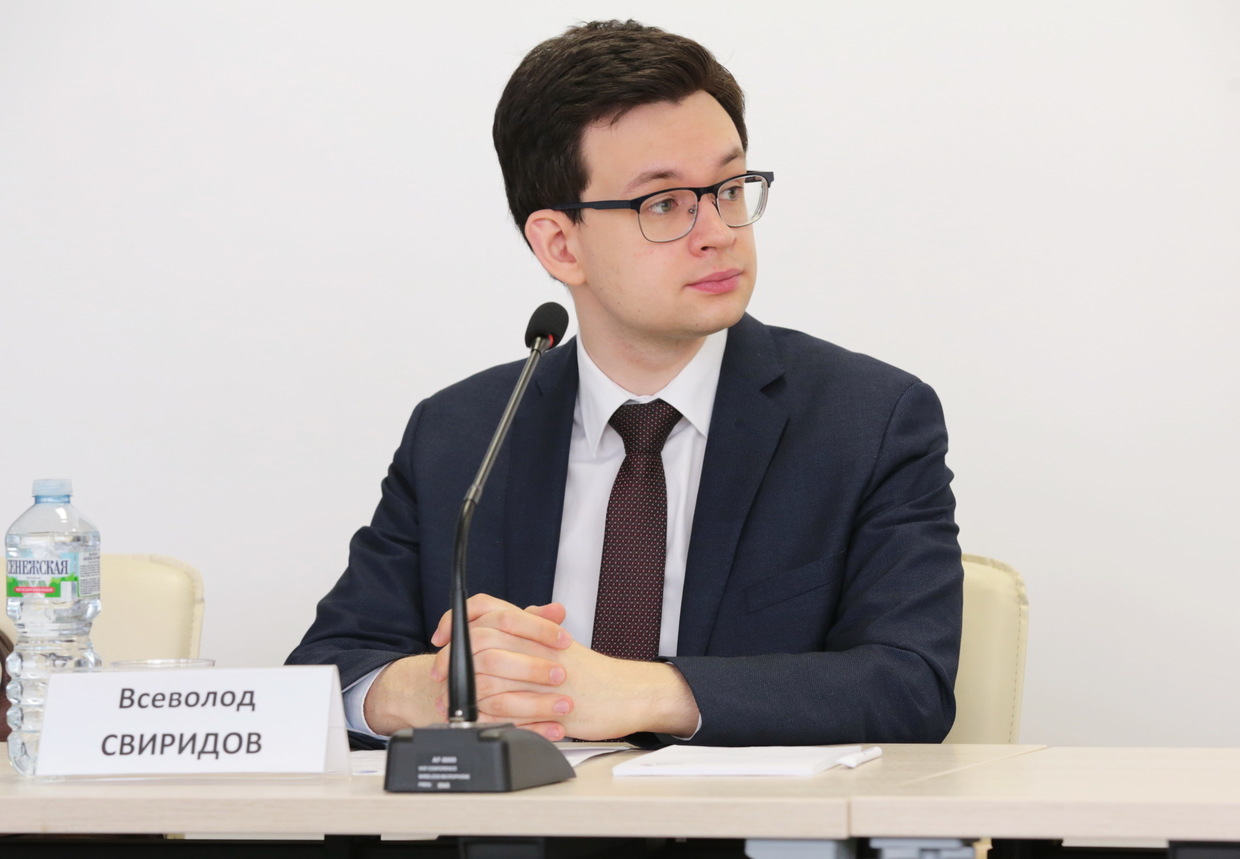
By Kestér Kenn Klomegâh
Donald Trump has been leading the United States as its president since January 2025. Washington’s priority is to Make America Great Again (MAGA). Trump’s tariffs have rippled many economies from Latin America through Asian region to the continent of Africa. Trump’s Davos speech has explicitly revealed building a ‘new world order’ based on dominance rather than trust. He has also initiated whirlwind steps to annex Greenland, while further created the Board of Peace, aimed at helping end the two-year war between Israel and Hamas in Gaza and to oversee reconstruction. Trump is handling the three-year old Russia-Ukraine crisis, and other deep-seated religious and ethnic conflicts in Africa.
These emerging trends, at least in a considerable short term, are influencing BRICS which has increased its geopolitical importance, and focusing on uniting the countries in the Global East and Global South. From historical records, BRICS, described as non-western organization, and is loosing its coherence primarily due to differences in geopolitical interests and multinational alignments, and of course, a number of members face threats from the United States while there are variations of approach to the emerging worldwide perceptions.
In this conversation, deputy director of the Center for African Studies at Moscow’s National Research University High School of Economics (HSE), Vsevolod Sviridov, expresses his opinions focusing on BRICS agenda under India’s presidency, South Africa’s G20 chairmanship in 2024, and genegrally putting Africa’s development priorities within the context of emerging trends. Here are the interview excerpts:
What is the likely impact of Washington’s geopolitics and its foreign policy on BRICS?
From my perspective, the current Venezuela-U.S. confrontation, especially Washington’s tightened leverage over Venezuelan oil revenue flows and the knock-on effects for Chinese interests, will be read inside BRICS as a reminder that sovereign resources can still be constrained by financial chokepoints and sanctions politics. This does not automatically translate into BRICS taking Venezuela’s side, but it does strengthen the bloc’s long-running argument for more resilient South-South trade settlement, diversified energy chains, and financing instruments that reduce exposure to coercive measures, because many African and other developing economies face similar vulnerabilities around commodities, shipping, insurance, and correspondent banking. At the same time, BRICS’ expansion makes consensus harder: several members maintain significant ties with the U.S., so the most likely impact is a technocratic push rather than a loud political campaign.
And highlighting, specifically, the position of BRICS members (South Africa, Ethiopia and Egypt, as well as its partnering African States (Nigeria and Uganda)?
Venezuela crisis urges African members to demand that BRICS deliver usable financial and trade tools. For South Africa, Ethiopia, and Egypt, the Venezuela case is more about the precedent: how quickly external pressure can reshape a country’s fiscal room, debt dynamics, and even investor perceptions when energy revenues and sanctions compliance collide. South Africa will likely argue that BRICS should prioritize investment, industrialization, and trade facilitation. Ethiopia and Egypt, both debt-sensitive and searching for FDI, will be especially attentive to anything that helps de-risk financing, while avoiding steps that could trigger secondary-sanctions anxieties or scare off diversified investors.
Would the latest geopolitical developments ultimately shape the agenda for BRICS 2026 under India’s presidency?
India’s 2026 chairmanship is already framed around “Resilience, Innovation, Cooperation and Sustainability,” and Venezuela’s shock (paired with broader sanction/market-volatility lessons) will likely sharpen the resilience part. From an African perspective, that is an opportunity: South Africa, Ethiopia, and Egypt can press India to translate the theme into deliverables that matter on the ground: food and fertilizer stability, affordable energy access, infrastructure funding. India, in turn, has incentives to keep BRICS focused on economic problem-solving rather than becoming hostage to any single flashpoint. So the Venezuela episode may function as a cautionary case study that accelerates practical cooperation where African members have the most to gain. And I would add: the BRICS agenda will become increasingly Africa-centered simply because Africa’s weight globally is rising, and recent summit discussions have repeatedly highlighted African participation as a core Global South vector. South Africa’s G20 chairmanship last year explicitly framed around putting Africa’s development priorities high on the agenda, further proves this point.
World
Afreximbank Terminates Credit Relationship With Fitch Amid Rating Tension

By Adedapo Adesanya
African Export-Import Bank (Afreximbank) has has officially terminated its credit rating relationship with Fitch Ratings, indicating friction between both firms.
According to a statement on Friday, the Cairo-based African lender said the decision follows a review of the relationship, and its firm belief that the credit rating exercise no longer reflects a good understanding of the bank’s Establishment Agreement, its mission, and its mandate.
“Afreximbank’s business profile remains robust, underpinned by strong shareholder relationships and the legal protections embedded in its Establishment Agreement, signed and ratified by its member states,” the statement added.
Business Post reports that Fitch had cut Afreximbank’s credit rating to one notch above ‘junk’ Status last year and currently has it on a ‘negative outlook’, which is a rating agency’s terminology for another downgrade warning.
Lower rating means higher borrowing costs for Afreximbank, which could directly impact its ability to lend and the low rates at which it does so.
Recall that Fitch in its report published in June 2025, had estimated Afreximbank’s non-performing loans at 7.1 per cent by the end of 2024, exceeding Fitch’s 6 per cent “high risk” threshold.
The African Peer Review Mechanism (APRM) contested Fitch’s assessment and argued that Fitch confused loan restructuring requests from South Sudan, Zambia, and Ghana by considering them as defaults, claiming this was inconsistent with the 1993 treaty establishing Afreximbank.
African policymakers have raised worries about the ratings by foreign rating agencies like Fitch, Moody’s, and S&P among others. This has increased call for an African focused agency, which is expected to have commenced but continues to face delays.
-

 Feature/OPED6 years ago
Feature/OPED6 years agoDavos was Different this year
-
Travel/Tourism9 years ago
Lagos Seals Western Lodge Hotel In Ikorodu
-

 Showbiz3 years ago
Showbiz3 years agoEstranged Lover Releases Videos of Empress Njamah Bathing
-

 Banking8 years ago
Banking8 years agoSort Codes of GTBank Branches in Nigeria
-

 Economy3 years ago
Economy3 years agoSubsidy Removal: CNG at N130 Per Litre Cheaper Than Petrol—IPMAN
-

 Banking3 years ago
Banking3 years agoSort Codes of UBA Branches in Nigeria
-

 Banking3 years ago
Banking3 years agoFirst Bank Announces Planned Downtime
-

 Sports3 years ago
Sports3 years agoHighest Paid Nigerian Footballer – How Much Do Nigerian Footballers Earn


